As we continue our look back over the most iconic photos of Liverpool Football Club’s history, we cover tragedy and triumph in the 1980s.
With the 1970s ushering in the Bob Paisley era and the Reds enjoying continued success, the 1980s began in much the same vein, winning a third European Cup in 1981.
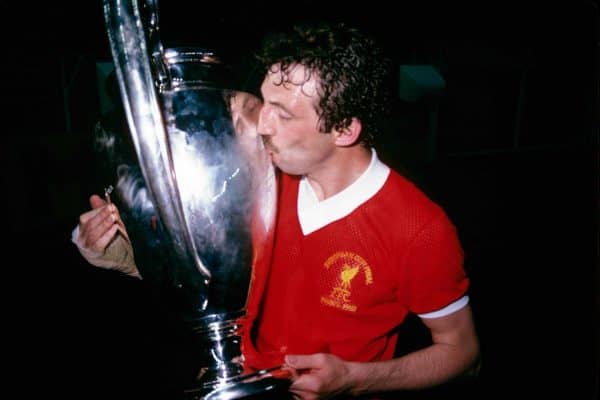
It took a solitary, late goal from Alan Kennedy (above) to seal a 1-0 win over Real Madrid in Paris, with the left-back taking up a key role for Liverpool throughout the decade.
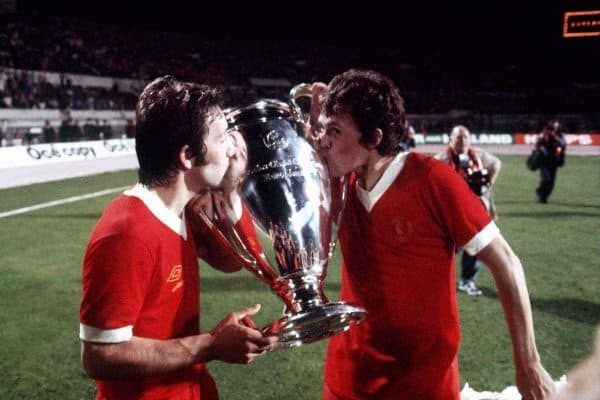
On the other side of the defence was Phil Neal: the most decorated player in the history of Liverpool Football Club, with an incredible 22 major honours.
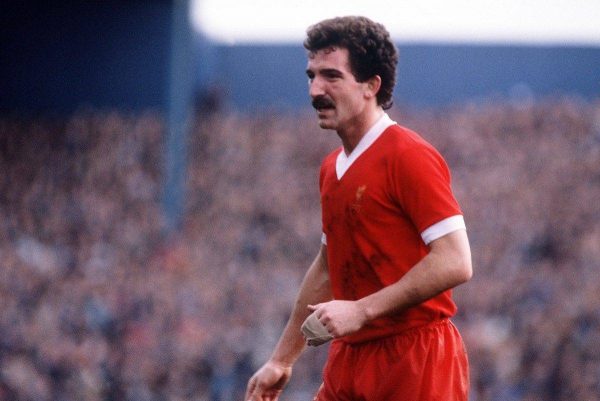
Signed in 1978, Graeme Souness became the bedrock of Liverpool’s success in the early 1980s, taking on the role of captain in 1981, before leaving for Sampdoria three years later.
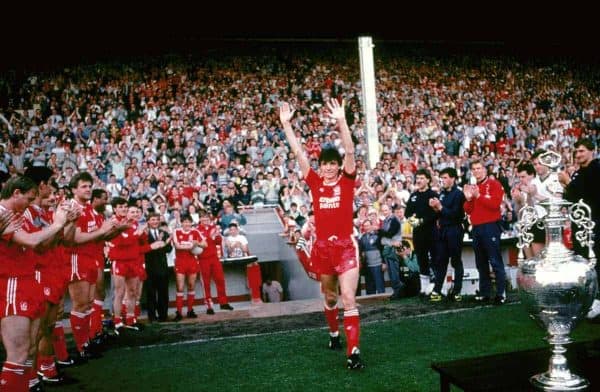
And at the back, Alan Hansen cemented himself in the pantheon of the Reds’ greatest ever centre-backs, and a key proponent of the Liverpool way.
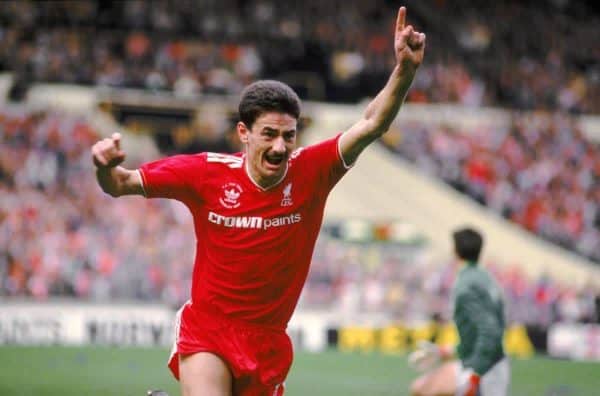
Signed at the beginning of the decade, Ian Rush quickly endeared himself to the Liverpool faithful, scoring four goals in a 5–0 victory over Everton in 1982.
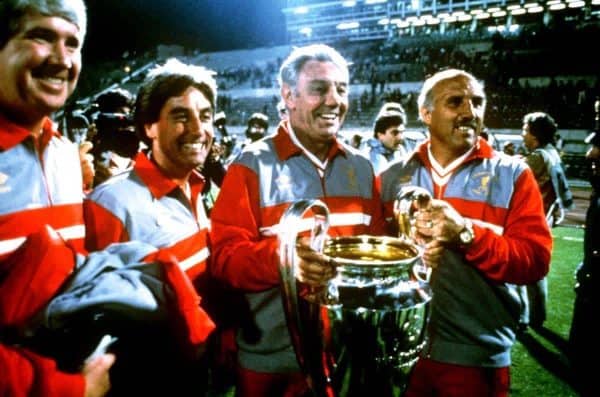
After 44 years with the club, Paisley stepped down from his role as manager at the end of the 1982/83 campaign, to be replaced by another member of the Bootroom, Joe Fagan.
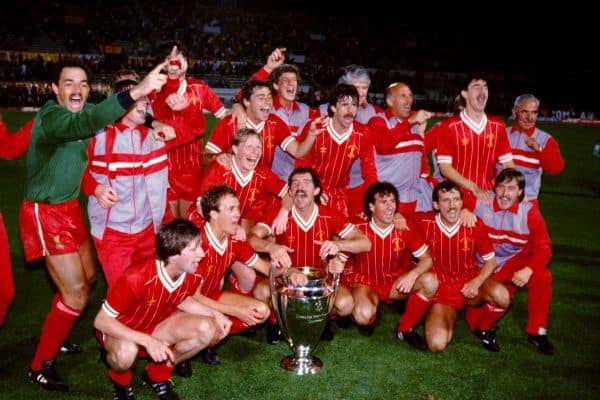
It wasn’t long before Fagan had continued the tradition on Merseyside, steering Liverpool to victory over AC Milan in the European Cup final, securing a priceless treble in his first season.
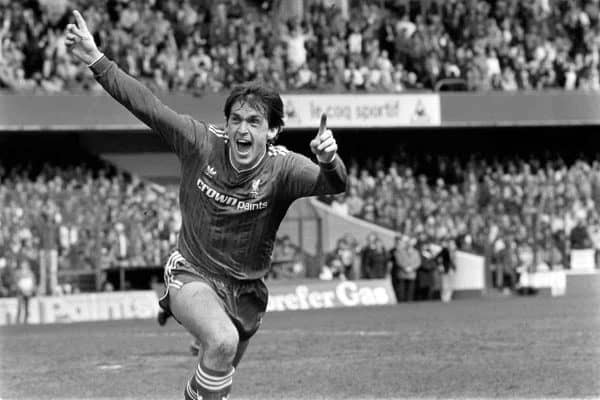
This was followed, in 1986, by another double, this time with player-manager Kenny Dalglish at the helm, with the legendary No. 7 bringing home Liverpool’s 16th league title with the winning goal against Chelsea on the final day of the season.
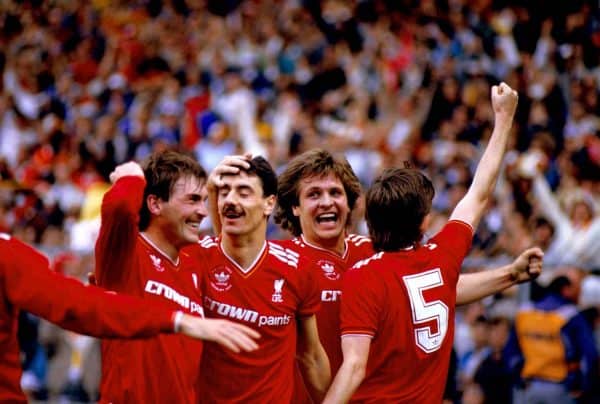
Rush was the Reds’ leading scorer that season, with 31 goals in all competitions, and the Welshman is still holds the all-time club record with 346 strikes in 660 games over two spells.
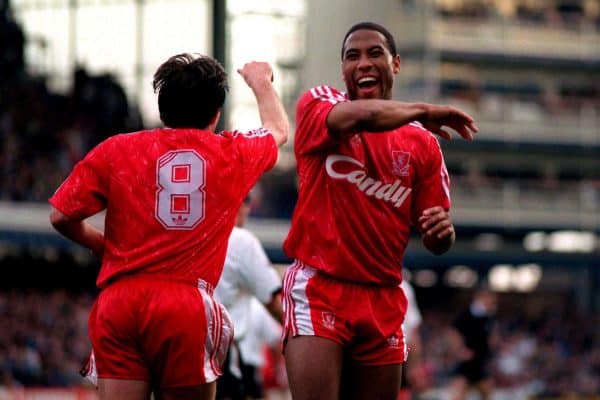
Dalglish oversaw the shifting into a new era at Anfield, and key to this was the signing of John Barnes in 1987, with the winger joining fellow new arrivals Peter Beardsley, John Aldridge and Ray Houghton, and later the returning Rush, to form a sensational forward line.
The 1980s were clouded by two separate footballing tragedies, however, with Liverpool banned from European competition for six years following the deaths of 39 people in the Heysel Stadium disaster in 1985.
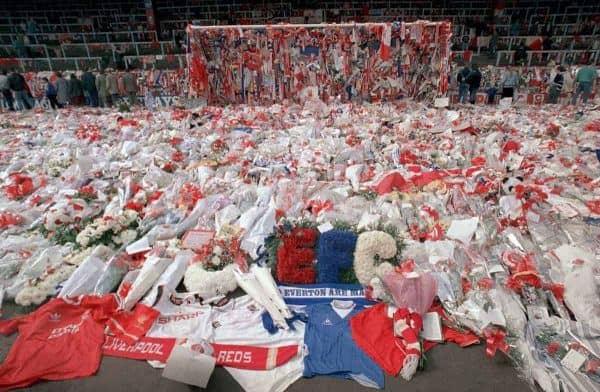
And four years later on that fateful day in April 1989, 96 innocent lives were list in a horrific chain of events at Hillsborough Stadium – a tragedy that eventually saw Dalglish relinquish his position as Liverpool manager, having attended dozens of funerals, including four in one day.
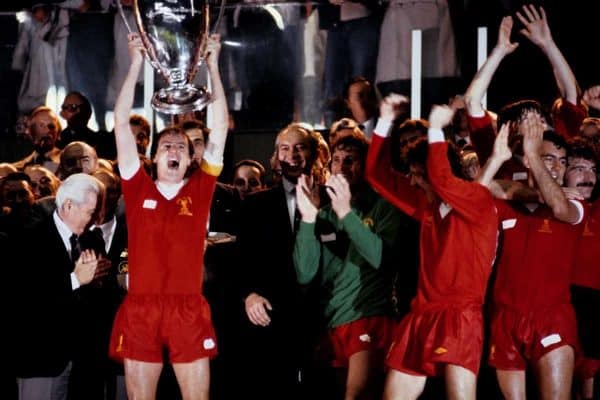





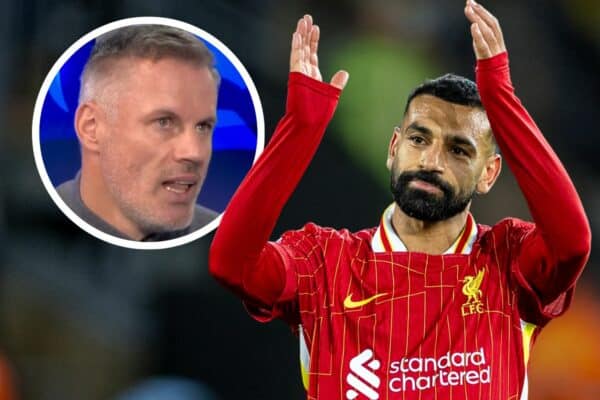
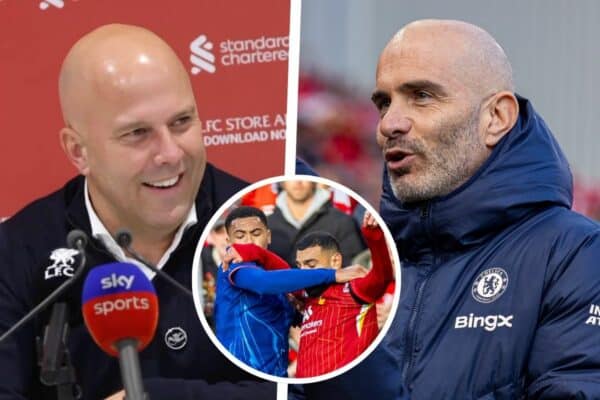

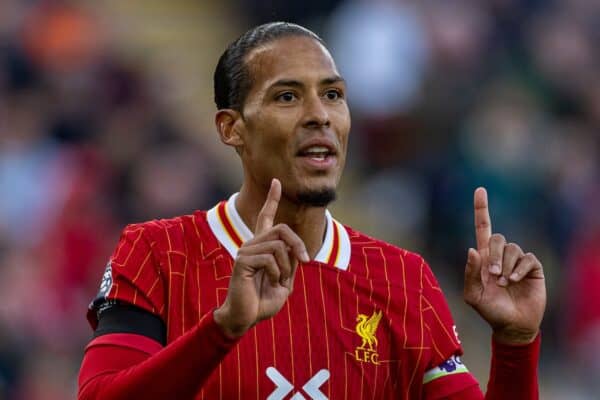
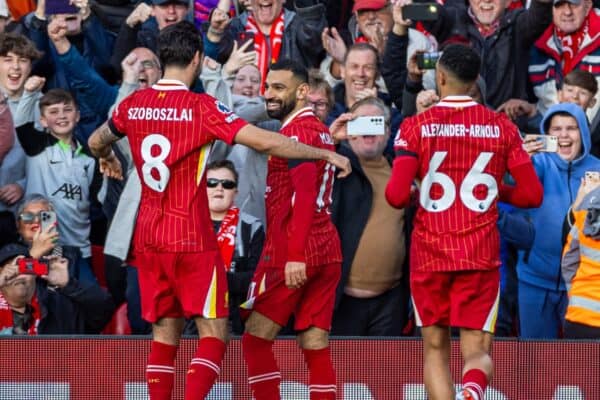
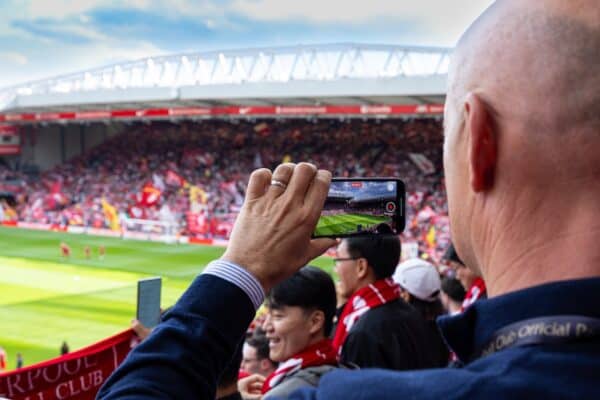
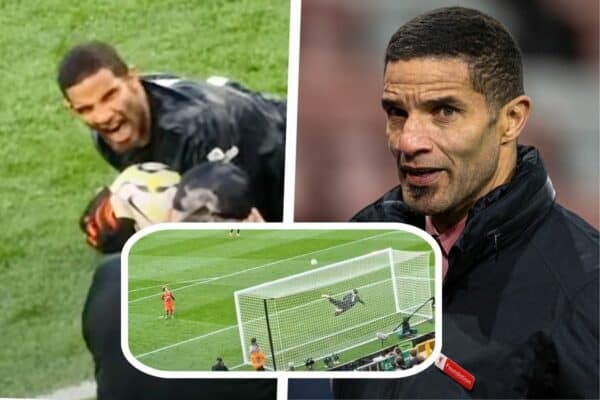
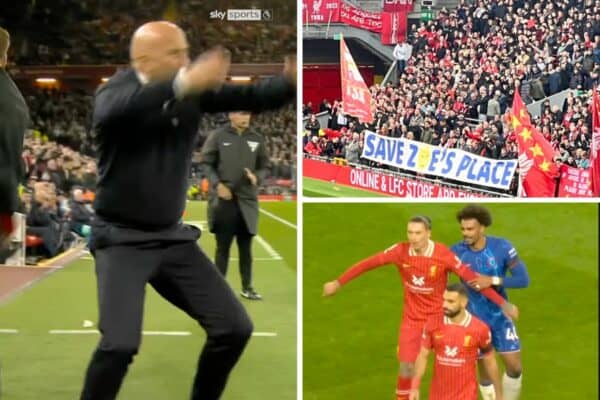




Fan Comments